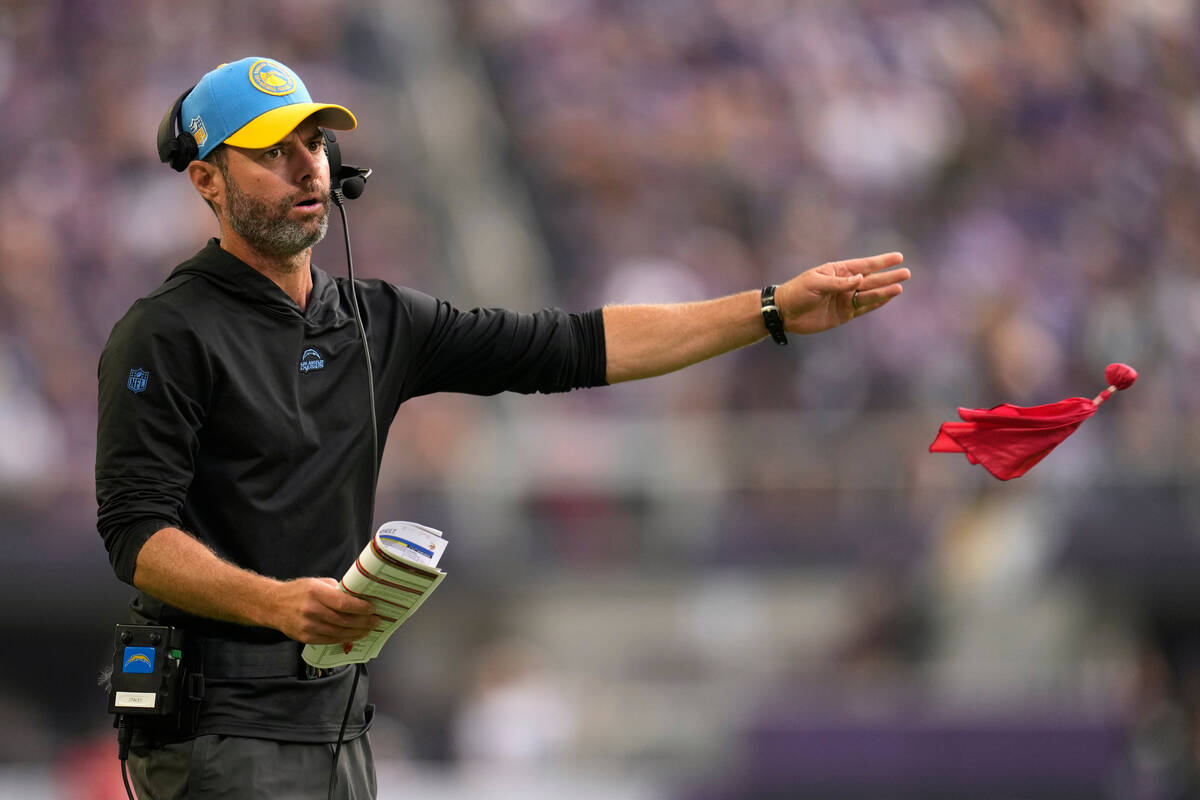Hill: Chargers coach’s 4th-down decision was right. That’s just math
With the knowledge that many people use sports as a getaway and would rather use a shot glass than a calculator while watching football, it’s time for a quick math lesson.
We’re not talking about basic addition and subtraction, or even multiplication tables. I would never insult anyone by suggesting those simple tasks were beyond the average football fan’s comprehension.
But apparently most fans and media members didn’t get much past seventh grade, which is when we start to learn about statistics and probabilities.
If middle schoolers are learning this, why is it such a difficult concept for us as a sports culture to grasp?
When I first learned I was going to have a weekly space to share my thoughts, the one thing I hoped to accomplish was to help people stop being so afraid of the influx of math into sports. It’s really not a scary thing. But people love fighting against it.
Apparently the one column I wrote defending analytics did not immediately change the world. That’s disappointing.
So here we are again.
No guarantees
The first thing that some people somehow tend to get wrong about analytics in sports is that even the most ardent defender never suggests any guaranteed outcome. Yet you hear it all the time. A coach makes a mathematically sound decision that doesn’t quite work, and the old-school thinkers immediately start with the, “How’s that for math?” nonsense.
The purpose of incorporating analytics into decision-making is to optimize a team’s probability of winning by finding the smallest of edges with every choice that’s made. A team may gain an edge of a half of a percent by making the right choice. An edge of 2 or 3 percent is a huge deal. Anything more makes for what should be an easy decision.
There are no promises of success. That’s not how this works. A decision that takes your win probability from 72 percent to 74 percent doesn’t mean a team is going to win 100 percent of the time. It’s really not that complicated.
Which of course leads us to Sunday’s game between the Chargers and Raiders. Coaches Brandon Staley and Josh McDaniels took a great deal of heat last week for late-game decisions.
The choice by McDaniels to kick a field goal down eight late against the Steelers was baffling and wrong. Obviously. And the Raiders lost the game.
Staley electing to go for it on fourth-and-1 from his own 24 with 1:51 left against the Vikings was absolutely correct. Undeniably. The Chargers had a win probability of 77.8 percent by punting. It was 84.2 percent by going for it. Easy choice.
The only real argument for punting is, “Well, that’s how coaches have always done things.” Guess what? They were wrong.
If you want to argue it was a bad offensive playcall, go ahead. It was terrible. But going for it was the only decision to be made. (The Chargers failed on fourth down, but won 28-24 anyway.)
Can’t do it in your head
One of the silliest arguments that was made against Staley this week was, “Sure, it’s the right call if you pick up the first down, but what do your silly analytics say about what happens when you don’t pick it up?”
You do know that the formula takes that into account, right? The formulas, which most smart teams fine-tune each week based on things like matchups, weather and injuries, are able to run thousands of potential scenarios in a split second as opposed to the human brain trying to process all those things under the weight of screaming fans, a play clock ticking down and all of the pressures that go along with coaching.
Have you seen how bad some of these coaches are at managing the clock? Do you really think they are that dumb? No, there are just so many factors and so many things happening so quickly on the field that it becomes difficult to get it right. It’s understandable.
I’ll trust the math, and so should you.
Contact Adam Hill at ahill@reviewjournal.com. Follow @AdamHillLVRJ on X.



















